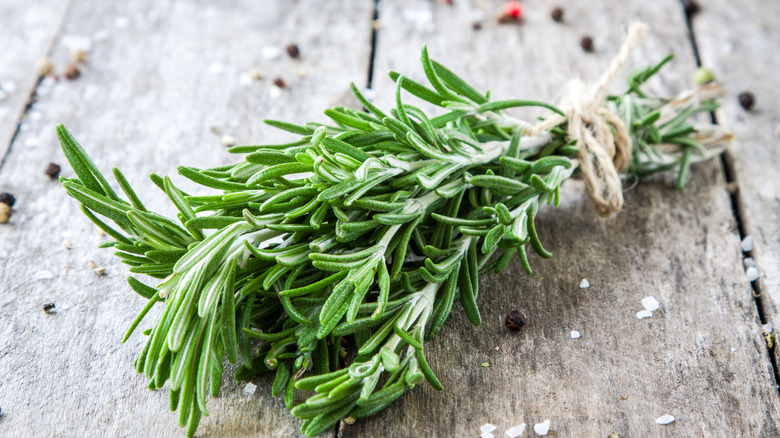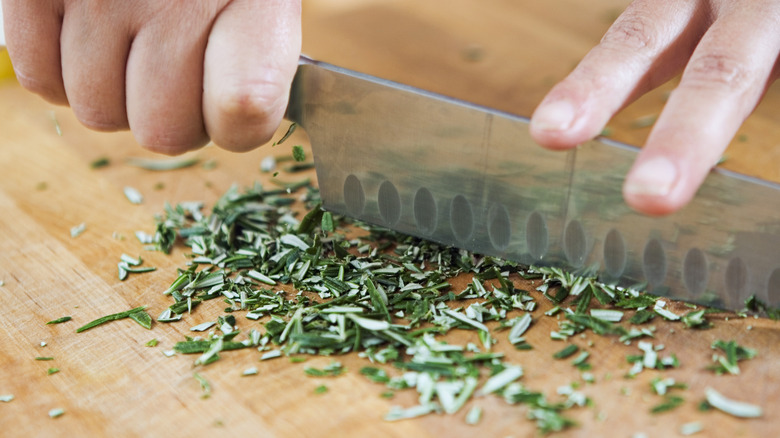How To Store Fresh Rosemary So It's Easier To Separate
Rosemary is an herb that by any other name, well, would not be rosemary. With its distinctive and dominating flavor and smell, rosemary can overwhelm the senses when used in excess. However, a simple sprig of its woody and piney taste can be a game changer when making a favorite soup or marinade. Its fragrant nature can be the perfect flavor enhancer for meats and potatoes prepared on the grill, or just the right addition to a Mediterranean-inspired, creamy ice cream. And if you really want to draw out fresh rosemary's flavor, you can use a sugar technique and make the taste of your cranberry-rosemary spritzer mocktail even more delicious.
But rarely is fresh rosemary purchased in the small quantities needed for these food and drink preparations. In fact, if experience has taught us anything, it's that there is always more than needed that goes to waste. So, what is the best way to store your leftover rosemary? Freezing this herb for future use is both practical and easy to do. Of course, one of the hazards of storing your sprigs of rosemary in the freezer is they tend to all clump together. But never fear: There is a way to preserve your rosemary that ensures separating its leaves from its stems will be easy as pie.
Flash freezing is your friend
If you want to be able to easily separate your rosemary leaves from their stems, you may want to try a little flash freezing. This is an easy-peasy method that requires just a sheet pan and parchment paper. Place a few sprigs on a baking pan lined with parchment paper, place it in the freezer for a couple of hours, and you are in business. Once the rosemary is frozen, you can simply dump those icy springs into a container or freezer safe storage bag and your rosemary will be ready to use. Freezing the rosemary ultimately makes it easier to remove the leaves as you are ready to use them, and the process doesn't change this herb's flavor.
But if you don't want to freeze your rosemary, you could also go in the other direction and try drying your leftover springs. You will still need the parchment lined baking sheet, only instead of the freezer, you will pop your rosemary into the oven. Set the temperature to the lowest temperature and let this appliance do its job. You can also bundle the springs together and hang them in a sunshine lit room to allow them to dry — or you could always try microwaving your fresh herbs to dry them.

